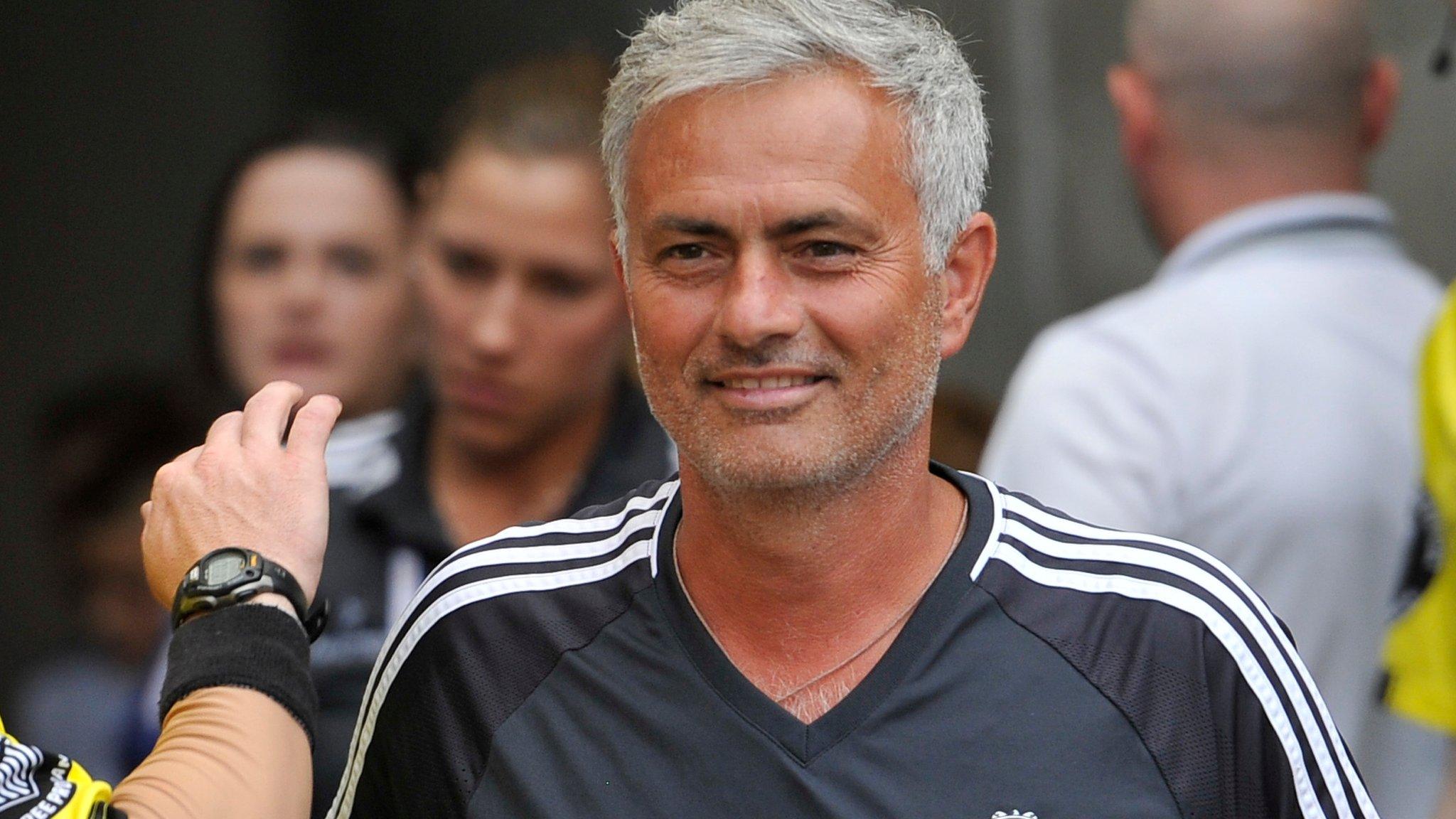International Champions Trophy: How pre-season has become new money-spinner
- Published
- comments
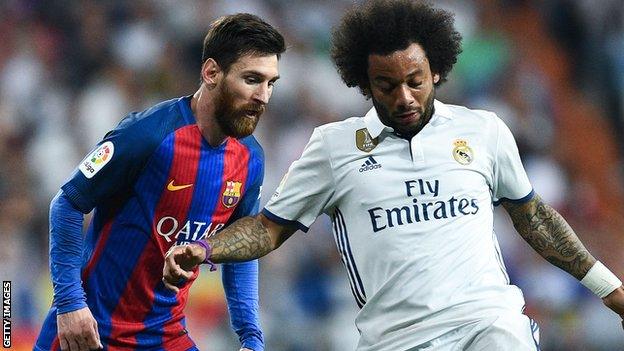
Saturday's friendly El Clasico will be played in a 65,000-capacity stadium
The man in charge of the International Champions Cup says the competition represents a new approach to pre-season preparations by Europe's elite clubs.
Fifteen of the continent's biggest clubs are contesting the 2017 edition, which is broken down into separate competitions in three countries.
This year, eight teams - Manchester City, Manchester United, Tottenham, Real Madrid, Barcelona, Paris St-Germain, Juventus and Roma - will have played three games each at 11 venues in the United States.
"These clubs realise they are bigger together than they are separate," says Charlie Stillitano, chairman of Relevent Sports, which launched the competition in 2013.
Speaking to BBC Sport, Stillitano added: "It comes down to trust and years and years of working.
"Early on they did not want to play against big teams. They certainly did not want to play against their big rivals. Over time that has changed.
"The bigger and better you are, the more exposure you have."
Already this month the two Manchester clubs met in their first derby played outside England - and 67,000 supporters turned up to watch.
And just this week, 200,000 fans attended three International Champions Cup fixtures held on the same day, even though the USA national team was playing Jamaica in the Gold Cup final on the same night.
To cap it all off, there's the small matter of Real v Barcelona to come on Saturday - the first El Clasico to be played outside Spain in 25 years.
Super League alternative
After years of playing low-key pre-season matches, Europe's biggest clubs have realised there is a market for marquee encounters, which raises their profile and drives commercial revenue.
And for now at least, it provides the closest thing we are going to get to a 'European Super League'.
"We need to be realistic," adds larger-than-life sports executive Stillitano. "What we have created is a great competitive product.
"If and when the authorities decide they want to open things up to a world league, we will be ready.
"But they have been trying to create a Champions League between South and North America. The obstacles don't just begin and end with the logistics of flying 12 hours to a game. They have hit major problems.
"I don't see a pan-European league happening at all."
So what's in it for the clubs?
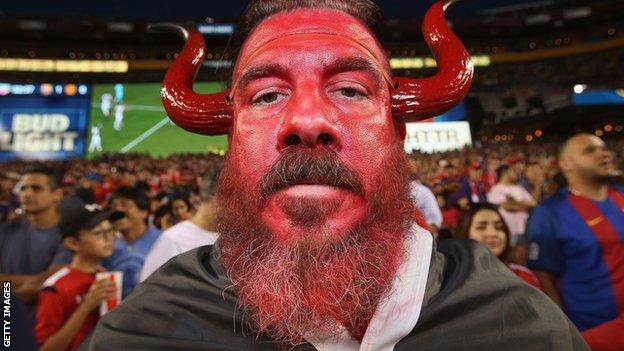
The devil is in the details - Manchester United received an estimated £12m for appearing in the International Champions Trophy
It is estimated clubs earned between £9m and £15m for taking part, external in the 2016 edition of the International Champions Cup.
The bigger the club and the bigger the games they play, the greater the fee.
So, for example, it's safe to assume Manchester United's games against Manchester City, Real Madrid and Barcelona, puts them safely in the upper echelon of earners.
The precise fees for each team are adjusted depending upon what the promoters provide and what clubs sort out for themselves. This may include perimeter advertising, which clubs can take responsibility for, allowing them to sell to their sponsors.
It's also a nice experience for players and staff - private planes and five-star hotels come as part of the package.
What is expected in return is Champions League-levels of media access - a pre-match news conference with the manager and a player, and for the manager to attend a post-match media briefing.
Clubs also hope to generate interest making themselves available to local media, in addition to doing interviews with rights holders which, in the USA, has been renowned sports broadcaster ESPN.
The statistics
This year, four games were played across four cities in China, with three matches taking place in Singapore, while eight teams play three games each at 11 venues in the USA
Previously there have been games in Australia, Canada, Spain, Italy, England, Sweden and the Republic of Ireland
There is a winner for each geographical area
Real Madrid have won the competition three times, Paris St-Germain two, Juventus and Manchester United once each
The tournament is broadcast in 170 countries through 65 different broadcast deals. More than 800,000 people attended last year's competition, approximately the same number as watched the entire Scottish Championship season in 2016-17
In 2014, Michigan had a US soccer record crowd of 109,318 for the game between Real and Manchester United
- Published27 July 2017
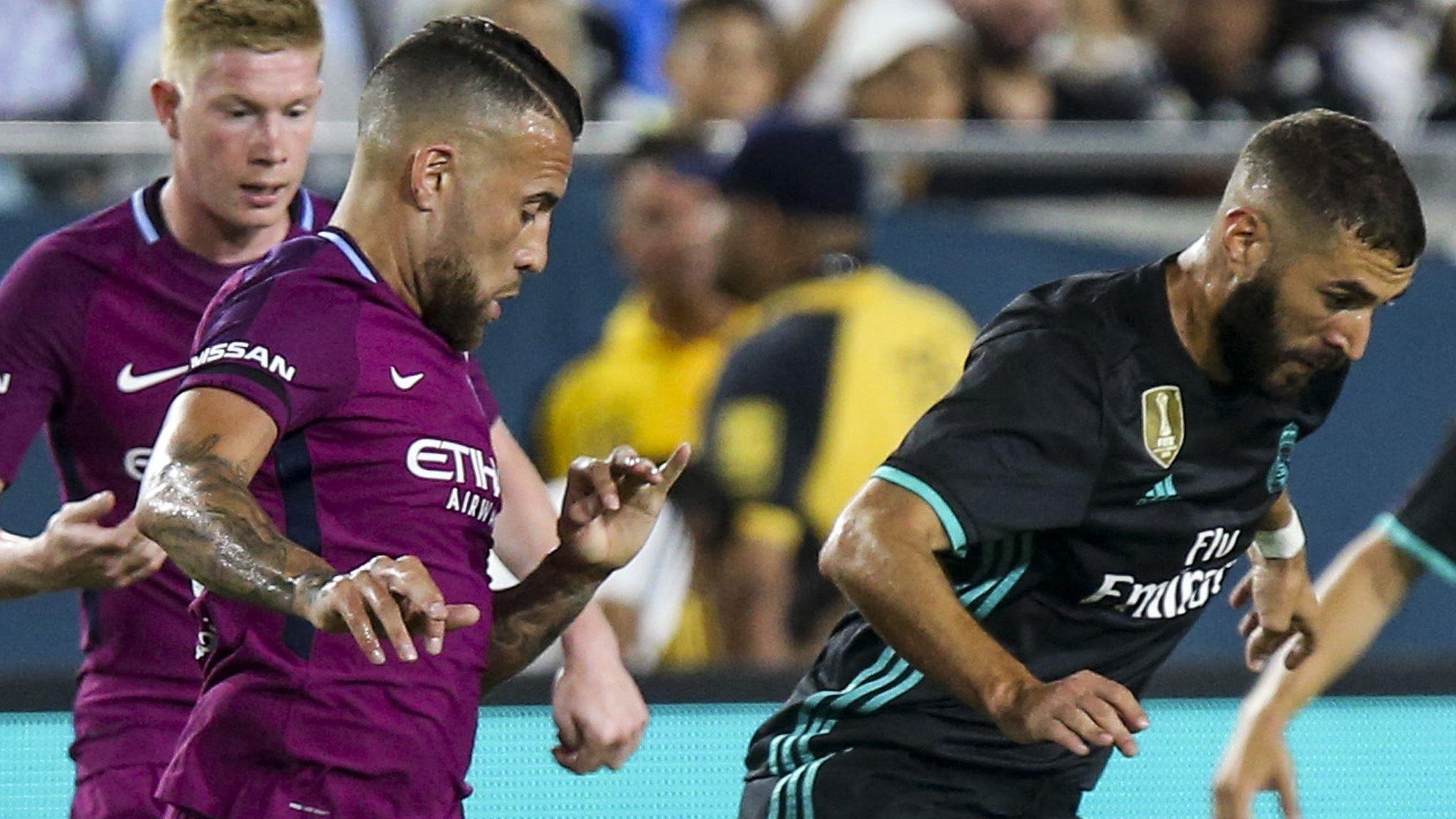
- Published25 July 2017
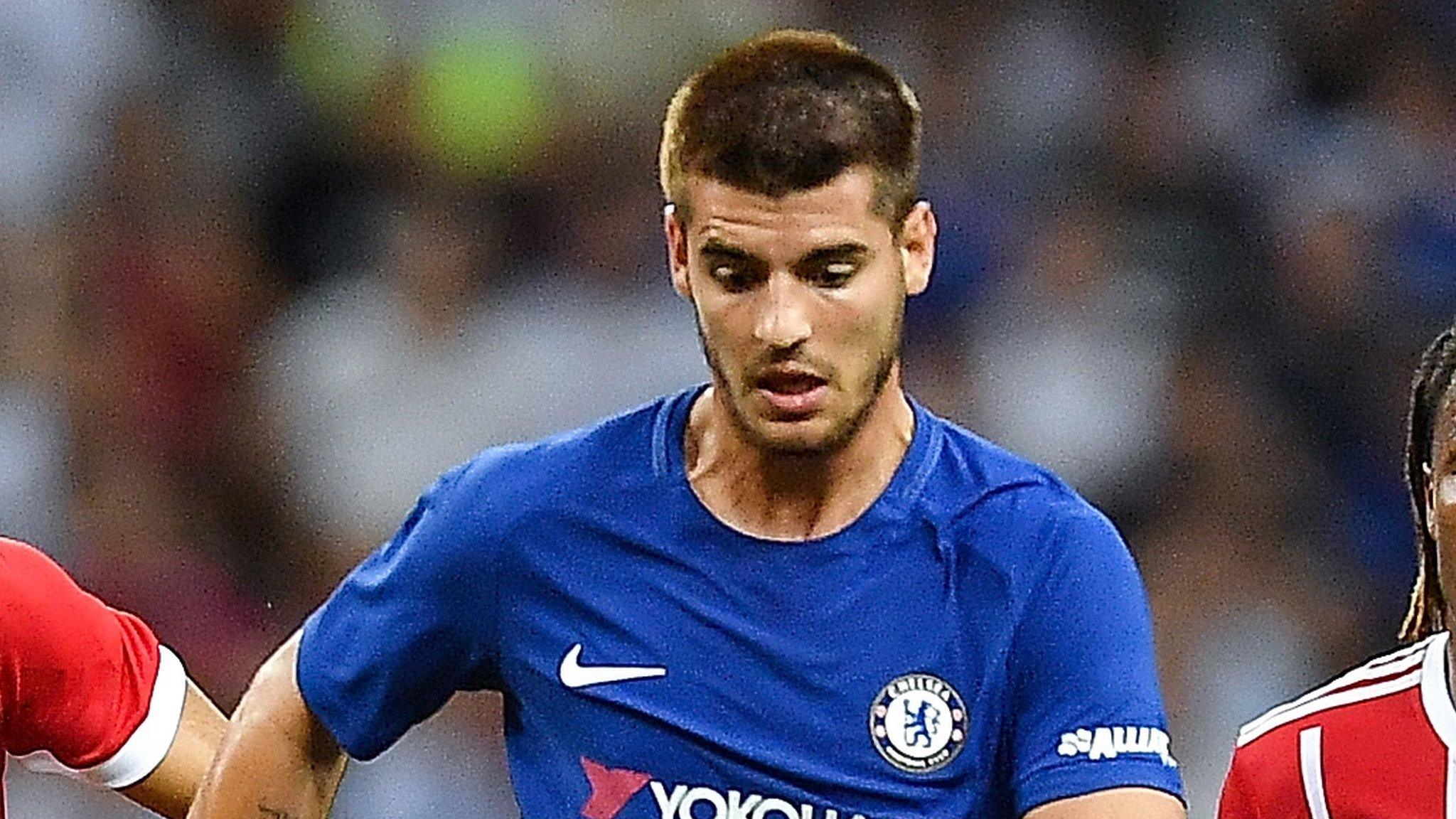
- Published25 July 2017
